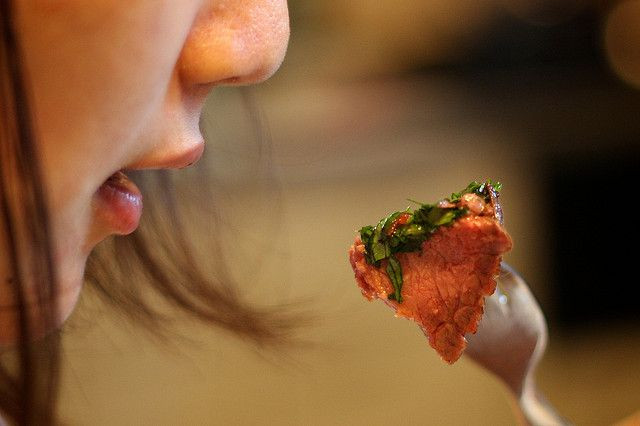How To Lose Weight: Glycemic Index And 'Fattening Foods' Differ From Person To Person

Even if we all ate the same meal, the way we metabolize it would differ from person to person, suggests a new study from the Weizmann Institute of Science. In fact, the glycemic index of any given food is not a set value but depends on the person, say the researchers. Their work foreshadows a new era of personalized nutrition for optimal weight and maximum health: the iDiet.
“Chronic hyperglycemia is a significant risk factor for type II diabetes mellitus, with up to 70 percent of prediabetics eventually developing the disease,” wrote the authors in an introduction to their new study. “It is also linked to… the metabolic syndrome, including obesity, hypertension, non-alcoholic fatty liver disease, hypertriglyceridemia, and cardiovascular disease.”
To prevent obesity and other symptoms of the metabolic syndrome, maintaining normal blood glucose levels is crucial, the researchers explain. Because a key decider of your blood glucose level is your diet, you need to choose foods which will contribute to normal postprandial (post-meal) glycemic responses (PPGR). But here’s the problem: No accurate method exists for predicting PPGRs. Carbohydrate content, which is how the American Diabetes Association does it, is not a good predictor of PPGRs, according to the authors, and neither is adding up the glycemic index of each single food you eat.
In search of a better method, Drs. Eran Segal and Eran Elinav, co-lead investigators from the Weizmann Institute in Israel, enlisted the help of 100 participants. Then, their research team measured the effects of 46,898 meals consumed by the 100. To do this, the researchers collected all necessary data through health questionnaires, body measurements, blood tests, glucose monitoring, stool samples, and even a mobile app.
As expected, the team discovered age and body mass index (BMI) were associated with blood glucose levels after meals. Yet, their study also revealed a different, very surprising finding. The data showed different people had hugely different responses to the exact same food.
For example, one middle-aged woman who was obese and pre-diabetic, had tried a range of diets yet consistently failed to see good results. Still, she continued eating in a healthy manner. Yet, during the study, whenever she ate tomatoes (which she did frequently), her blood sugar levels would spike. Her “healthy” eating habits may have been contributing to her weight and health problems, the study suggests.
To understand why (and to see why vast differences exist between people), the researchers conducted microbiome analyses on the stool samples they had collected from each participant. Their analysis showed specific microbes correlated with how much a participant’s blood sugar rose after each meal. Next, they conducted a personalized dietary intervention for 26 additional participants. With this approach, the researchers reduced post-meal blood sugar levels and even altered gut microbiota.
What the video below, courtesy of the authors, for more information:
Source: Zeevi D, Korem T, Zmora N, et al. Personalized nutrition by prediction of glycemic responses. Cell. 2015.



























